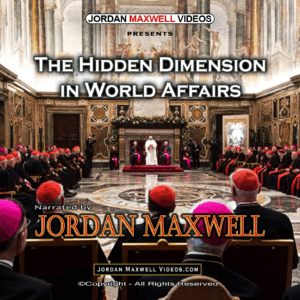Conspiracy Theory

Conspiracy theory, psychology of conspiracy theories, types of conspiracy theories, famous conspiracy theories, government cover-ups, historical conspiracies, conspiracy theory explanations, why people believe conspiracy theories, conspiracy theories in society, truth behind conspiracies
What Is a Conspiracy Theory? Unraveling Myths, Truths, and the Psychology Behind Them
Conspiracy theories have fascinated people for centuries. From government cover-ups to hidden global organizations, these theories offer alternate explanations to widely accepted narratives. But what exactly makes a theory “conspiratorial”? And why do so many individuals continue to believe in them, even when faced with contradicting evidence? In this article, we explore the concept of conspiracy theories, their psychological appeal, and why they persist in modern society.
Understanding Conspiracy Theories
A **conspiracy theory** is an explanation for events or situations that involves a secret, often sinister, plot by a group of people or organizations. These theories suggest that those in power are hiding the truth from the public to further their own agendas. The appeal of conspiracy theories lies in their ability to offer simple, easily digestible answers to complex questions, especially in times of uncertainty.
Many conspiracy theories target government agencies, multinational corporations, or influential individuals. They claim that these groups manipulate information, events, or outcomes to maintain control or protect their interests. However, it’s important to note that not all conspiracy theories are unfounded. Some theories have turned out to be true, although many are unsubstantiated or even outright false.
The Psychology Behind Conspiracy Theories
Why do people believe in conspiracy theories? The psychology behind them is complex and multi-faceted. Research shows that belief in conspiracy theories is often linked to feelings of powerlessness and distrust in authority. When people feel they have little control over their lives or society, they may turn to conspiracy theories as a way to regain a sense of agency.
Conspiracy theories also provide a sense of certainty in uncertain times. During periods of social, political, or economic instability, individuals are more likely to believe in alternate explanations for events. These theories offer clear, definitive answers, even when the truth is more ambiguous.
Additionally, humans have a natural tendency to look for patterns, even when none exist. This cognitive bias, known as “patternicity,” can lead individuals to make connections between unrelated events and view them as part of a larger, nefarious plot. The confirmation bias further strengthens these beliefs, as people seek out information that supports their theory and dismiss evidence to the contrary.
Common Types of Conspiracy Theories
There are numerous types of conspiracy theories, each with its own focus. Below are some of the most common ones:
Government Conspiracy Theories
Government cover-ups are perhaps the most popular type of conspiracy theory. These theories often claim that governments conceal crucial information or manipulate events for their own benefit. For example, the **Roswell UFO incident** has long been the subject of conspiracy theories, with many believing that the U.S. government recovered alien technology and bodies after a UFO crash in 1947.
Historical Conspiracies
Some conspiracy theories focus on historical events, claiming that widely accepted narratives are false or incomplete. One famous example is the **JFK assassination**. Many believe that the official explanation of Lee Harvey Oswald acting alone is a cover-up, and that other parties were involved in the assassination of President John F. Kennedy.
Health Conspiracy Theories
Health-related conspiracy theories have gained significant traction, especially with the rise of social media. The most notable example is the anti-vaccine movement, which claims that vaccines are part of a global plot to control the population or cause harm to individuals. Despite overwhelming scientific evidence supporting the safety and efficacy of vaccines, such conspiracy theories continue to circulate.
Global Control Theories
Some conspiracy theories focus on global elites or secret societies controlling world events. The **New World Order (NWO)** theory, for example, posits that a secret group of influential individuals is working toward establishing a totalitarian world government. Other theories claim that groups like the **Illuminati** are behind global events, manipulating world leaders for their own purposes.

Why Do People Believe in Conspiracy Theories?
The belief in conspiracy theories can be influenced by a variety of factors. For some, it is a desire to feel special or to have exclusive knowledge that others do not. This can lead to a sense of belonging to a select group of people who are “awake” to the truth, further reinforcing the theory’s credibility.
Social media and the internet also play a major role in spreading conspiracy theories. Online forums and platforms provide spaces for like-minded individuals to share their beliefs and reinforce each other’s ideas. Algorithms on these platforms often amplify content that generates strong emotions, leading to the rapid spread of sensational or unfounded conspiracy theories.
In many cases, believing in a conspiracy theory can serve as a coping mechanism. For individuals who feel disconnected from society or marginalized, conspiracy theories offer a way to explain their circumstances. They provide an external source of blame, making it easier to understand and cope with feelings of alienation or frustration.
Conspiracy Theories and Their Impact on Society
While some conspiracy theories are harmless, others can have serious consequences. Beliefs that undermine trust in public health, elections, or government institutions can lead to social unrest, political polarization, and a breakdown in societal cohesion. The spread of disinformation has led to real-world harm, from vaccine hesitancy to violent acts carried out by individuals who believe in conspiracies.
That said, there are moments in history where conspiracy theories turned out to be true. For example, the **Watergate scandal** was initially dismissed as a conspiracy theory but later became a proven fact. This highlights the importance of critical thinking and skepticism when evaluating claims—while many conspiracy theories are baseless, it’s important to question authority and demand transparency in government actions.
Conclusion: Critical Thinking Is Key
Conspiracy theories are not going away anytime soon. They continue to be a part of the global conversation, fueled by mistrust, fear, and uncertainty. However, it’s essential to approach these theories with critical thinking and skepticism. While some may hold kernels of truth, many are simply unfounded or harmful. By educating ourselves and questioning the narratives presented to us, we can better navigate the complex world of conspiracy theories.
For more in-depth discussions on the psychology of conspiracy theories, explore additional resources on Psychology Today.
Learn More at JordanMaxwellVideos.com
If you are interested in exploring the world of conspiracies further, visit JordanMaxwellVideos.com. We provide insightful videos and lectures that explore hidden truths, government cover-ups, and much more.






